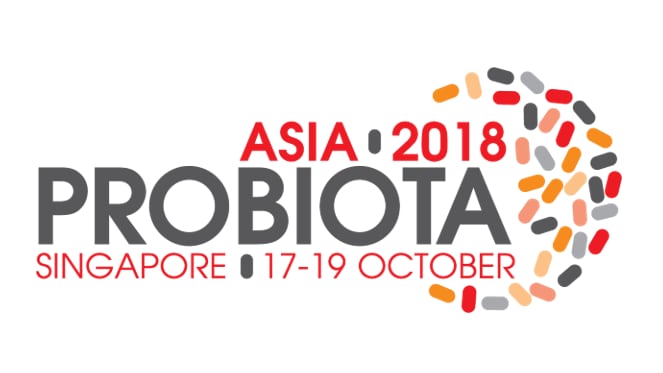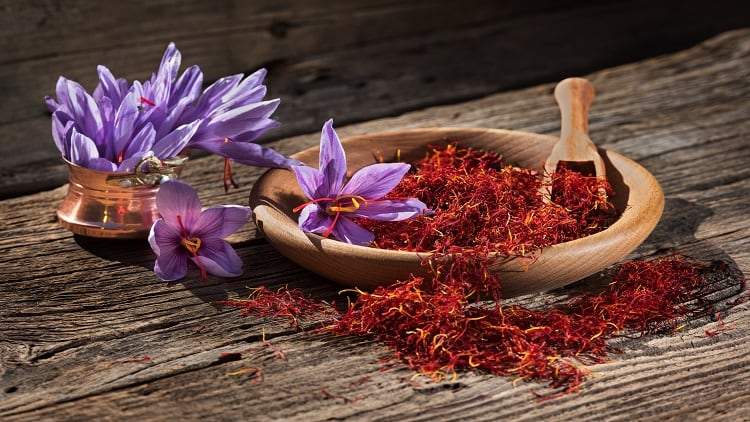
The region's leading probiotic and microbiome event — Probiota Asia — will get underway in Singapore this month with a stellar line-up of speakers, including the likes of Blackmores, Danone, Herbalife and Life-Space, set to take to the stage.
Branded as Saffretine, the supplement — which comes in the form of capsules — is targeted at individuals in their 40s to 60s.
There are also plans to bring the supplement to Japan and South East Asia at a later stage.
The supplement is a brainchild of the Indian Institute of Integrative Medicine (IIIM).
The researchers found out that crocins and aglycone crocetin present in the botanical extract of the saffron flower are key ingredients in delaying the onset of Alzheimer’s disease (AD), Ram Vishwakarma, the director of IIIM told NutraIngredients-Asia in an interview.
The research team has given crocins and aglycone crocetin the codename IIIM-141.
IIIM-141 delays the onset of AD by inducing the expression of p-glycoprotein (P-gp), Vishwakarma explained.
P-gp are present in the blood-brain barrier (BBB), which protects the brain from harmful substances, and P-gp removes toxics during sleep.
The research team hypothesised that AD is developed when the concentration of P-gp decreases with age. This results in the accumulation of amyloid-β – a type of protein involved in the development of AD, Vishwakarma said.
The team believed that as the concentration of P-gp increases, more amyloid-β would be removed.
This was later tested and confirmed in mice studies.
In July this year, the IIIM licensed the supplement making technology to Indian company Pharmanza Herbal.
“The neurodegenerative diseases are going to pose major challenges for the future of medicine. As life expectancy increases, these diseases are also becoming more important. We believe the solution to the challenges comes from natural products,” Vishwakarma said.
“More research should be done on plant-based dietary supplements and medicines,” he urged.
Efficacy test
The researchers tested the efficacy of IIIM-141 in improving neuro functions in mice study.
Two behavioural tests were conducted, namely the 1) Morris Water Maze (MWM) test and 2) passive avoidance test.
The first assesses the mice’s ability in locating a hidden platform while swimming in a pool.
The mice were previously trained to locate the platform.
Prior to the ability test, they were fed with a memory-impairing drug streptozotocin (STZ).
They were later treated with IIIM-141 at 50 and 100mg/kg dose, and the latter showed a more obvious reduction in response time.
For instance, the time taken to locate the hidden platform for STZ-induced mice reduced from around 60 secs to slightly more than 10 secs after receiving IIIM-141 treatment at a dosage of 100mg/kg for four days.
In the second test, the mice’s ability in avoiding an electric shock was assessed.
Similarly, the mice were fed with memory-impairing drug before the ability test – this time round, the use of scopolamine.
In this test, researchers found that the administration of IIIM-141 at 100mg/kg body weight for seven days have showed anti-dementia properties.
Safety test
Besides efficacy tests, researchers also conducted safety studies of IIIM-141 based on the guidelines of the Organisation for Economic Co-operation and Development (OECD).
It was found that all mice survived after undergoing single dose of 2,000mg/kg for 14 days.
In addition, no change in the body weight, biochemical and haematological parameters was seen, except for slight gastric distress and soft stools during the first hour of administration.
On the other hand, a 28-day repeat dose toxicity which was performed at 25, 50, and 100 mg/kg doses also did not show negative effects.
“There was no specific treatment associated pre-terminal deaths and abnormalities observed in the rats at any of these doses. All animals from the control and the treated dose groups survived throughout the dosing period of 28 days,” the researchers concluded.
Details of the research are documented in the following research paper: “Crocus sativus Extract Tightens the Blood-Brain Barrier, Reduces Amyloid β Load and Related Toxicity in 5XFAD Mice” and “Preclinical Development of Crocus sativus-Based Botanical Lead IIIM-141 for Alzheimer’s Disease”
Developing a medicine
There are plans to develop IIM-141 into a medicine, Vishwakarma revealed.
“After the launch of the supplement, we are planning to undertake the drug route and develop it into a drug in US,” he said.
“We will file the drug with the USFDA and intend to do clinical trials in the next one to two years.”
At present, a patent application for the supplement has been filed.
AD is one of the leading causes of dementia. 50 million people worldwide are living with dementia in 2018, and the number is expected to triple to 152 million by 2050, according to the World Alzheimer Report 2018.
Source: ACS Omega
DOI: 10.1021/acsomega.8b00841
"Preclinical Development of Crocus sativus-Based Botanical Lead IIIM-141 for Alzheimer’s Disease: Chemical Standardization, Efficacy, Formulation Development, Pharmacokinetics, and Safety Pharmacology"
Authors: Sonali S. Bharate, et al.



